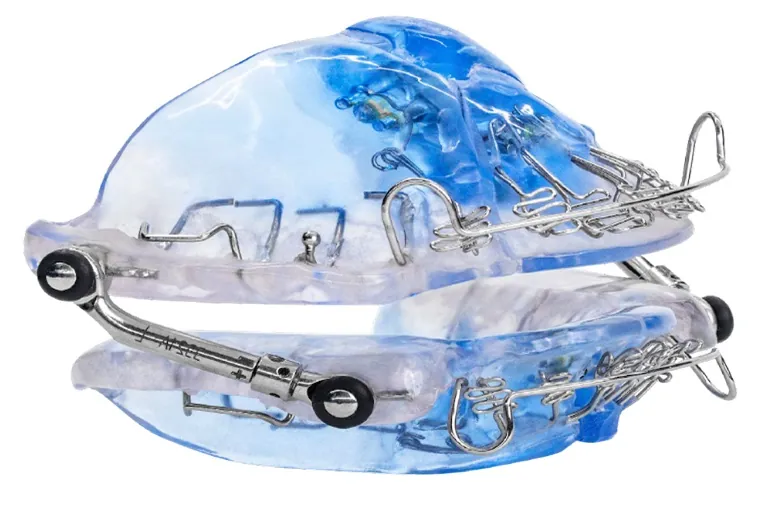Obstructive sleep apnea (OSA) is a common yet serious condition that affects an estimated 6 to 13 percent of women and men in the United States. Sleep apnea is associated serious health conditions like heart disease and type 2 diabetes, and research has shown that it could have a significant impact on mental health as well.
Untreated obstructive sleep apnea can result in poor sleep and increased depression and anxiety. According to some research, people with obstructive sleep apnea are three times more likely to suffer from depression, anxiety, and psychological distress. Here is what you should know about the relationship between obstructive sleep apnea and mental health.
What Is Obstructive Sleep Apnea?
Obstructive sleep apnea is a condition that affects how a person breathes when they are asleep. When a person has obstructive sleep apnea, their breathing is interrupted frequently as they sleep. The airway becomes partially or fully blocked periodically, resulting in pauses in breathing.
While breathing is stopped, the person’s body has to work to reopen the airway and breathe again. Breathing often resumes with a gasp or choking sound. Many people who have obstructive sleep apnea also snore.
Stress
Stress is a fact of life for most adults, but it is not without its health consequences. Constant stress can negatively affect both physical and mental health. Two-thirds of people in the United States have reported that stress affects their health, and research has shown that stress can contribute to worse outcomes for people with chronic health conditions.
When it comes to mental health, stress can be detrimental as well. Stress has been linked to other psychological health problems, including depression and anxiety. In a study comparing people with untreated obstructive sleep apnea to healthy individuals, those with OSA reported more stress on average than the healthy group. According to the study, it is possible that a frequent lack of oxygen during sleep causes damage to an area of the brain that is associated with stress. Higher levels of stress can put a person at risk for other mental health issues, including depression and anxiety.
Depression
Depression can be common among people who have obstructive sleep apnea. Studies have found close to 50 percent of obstructive sleep apnea patients also have symptoms of depression. Despite the prevalence of people with both conditions, these patients may not always get an accurate diagnosis.
Depression and obstructive sleep apnea often share several symptoms, including fatigue, irritability, concentration trouble, weight gain, and sleepiness during the day. As a result, people who seek help for symptoms of depression may have obstructive sleep apnea and not realize it.
Although there are a high number of obstructive sleep apnea patients with depression, health experts have not determined the relationship between the two conditions and what may cause depression in these patients. It is possible a lack of sleep or lower levels of oxygen during sleep could play a role in developing depression. In one study, obstructive sleep apnea patients who had excessive daytime sleepiness were more likely to have symptoms of depression. It was theorized that waking up frequently in the night may contribute to depression. In another study, researchers found that oxygen supplementation helped reduce depression symptoms, so it is possible that a lack of oxygen also increases depression in patients.
Anxiety
Obstructive sleep apnea and anxiety are a double whammy for a good night’s sleep. Both conditions on their own are likely to keep a person up or cause frequent awakenings. Unfortunately, these two conditions are often found together, making restful sleep a distant dream.
Obstructive sleep apnea can cause a lack of sleep that may increase the chances of feelings of anxiety. In turn, anxiety can continue to impair sleep at night, making it difficult to get adequate rest. Health experts say obstructive sleep apnea could even make anxiety worse as well. Achieving deep sleep at night is important in order for the body and mind to recharge and reduce anxiety. Treating sleep apnea can help put a stop to the cycle of poor sleep and the resulting anxiety.
Suicidal Ideation
In some cases, obstructive sleep apnea may increase the risk of suicidal thoughts in depressed individuals. In a randomized national survey, nearly 10 percent of people with obstructive sleep apnea had suicidal thoughts. People with obstructive sleep apnea were more likely to have suicidal thoughts than those without the condition. About 5 percent of people without sleep apnea had thoughts of suicide.
Treating Sleep Apnea
Effectively treating obstructive sleep apnea is important to reduce the effects of the condition on mental health. Sleep apnea treatment does not directly address symptoms of depression, anxiety, stress, and other mental health conditions. However, due to the relationship between obstructive sleep apnea and mental health, addressing OSA can be beneficial to mental health.
Some studies have found that people who have adhered to obstructive sleep apnea treatment had improved quality of life and fewer symptoms of depression, anxiety, and stress. Patients have found success with one of the most common obstructive sleep apnea treatments, a continuous positive airway pressure (CPAP) machine. Other treatments that can improve sleep apnea include various airway pressure devices, dental appliances, and surgical interventions. In some cases, lifestyle changes like exercise, weight loss, reducing alcohol intake, and different sleep positions can be helpful.
Obstructive sleep apnea is a serious disorder that can cause physical and mental health problems. Treating OSA well is the best way to mitigate the effects of obstructive sleep apnea on mental health.
The statements made on this website are for educational purposes and include articles, educational materials, and research on various topics within the Sleep and Dental industries and are not the views of, or are in connection with Vivos Therapeutics and/or its regulated products. The statements are not intended to accompany any required product labeling for a regulated product. Neither are such statements intended to introduce a new indication, patient population, alter the directions for use, or otherwise change or supplement any required labeling for a regulated product.

